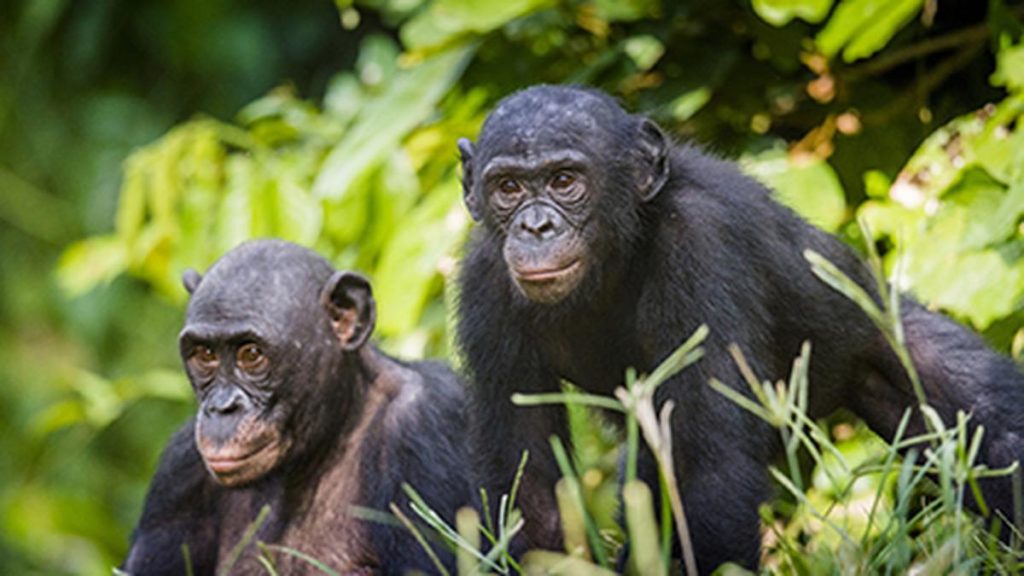(This article forms a part of the Science for All newsletter that takes the jargon out of science and puts the fun in! Subscribe now!)
The idiom “monkey see, monkey do” refers to someone copying an action without putting much thought into it. It literally lays the blame at a monkey’s feet, but a new study shows that bonobos will point something out to you if they think you’ve missed it.
The study, published in Proceedings of the National Academy of Sciences and conducted by researchers at the Johns Hopkins University’s Social and Cognitive Origins Group, describes an experiment with three bonobos, a species of ape that shares 98.7% of its DNA with humans.
During the experiment, the three bonobos, named Nyota (aged 25), Kanzi (43), and Teco (13), interacted with study coauthor Luke Townrow. One bonobo would sit across Townrow with a table in between, and watch as another person placed a treat under one of three cups. Sometimes Townrow could see where it was kept, sometimes he couldn’t.
Regardless of whether Townrow could see where the treat was kept, he would ask, “Where’s the grape?” and wait for 10 seconds.
The researchers noticed that if Townrow had seen where the treat was put, the bonobo would sit still and wait for the treat. If Townrow couldn’t see where the treat was hidden, the bonobo would point at the cup quite emphatically.
“We predicted that if apes were really tracking ignorance, when their partners lacked knowledge, they would be pointing more often and more quickly, and that’s exactly what they did,” co-author Chris Krupenye said in a press release.
According to the researchers, the experiment offered the clearest evidence to date that bonobos, and by extension apes, could understand the concept of gaps in knowledge.
“The ability to sense gaps in one another’s knowledge is at the heart of our most sophisticated social behaviours, central to the ways we cooperate, communicate and work together strategically,” Krupenye said.
According to him, this intuition alludes to a theory of mind in which an individual has the ability to understand other individuals’ mental beliefs, intentions, and states. This capacity was thought to be uniquely human.
“But this work demonstrates the rich mental foundations that humans and other apes share — and suggests that these abilities evolved millions of years ago in our common ancestors,” Krupenye added.
The study also suggested apes can hold two conflicting beliefs — knowing where the treat is and knowing their teammate doesn’t have the same knowledge — demonstrating more mental sophistication than scientists believed they possessed.
“What we’ve shown here is that apes will communicate with a partner to change their behavior,” Townrow said, “but a key open question for further research is whether apes are also pointing to change their partner’s mental state or their beliefs.”
The team’s experiment was also able to replicate in a controlled setting situations in the wild where apes have been known to warn their peers of danger.
From the Science pages
Question Corner
Flora and fauna
Published – February 06, 2025 05:53 pm IST








